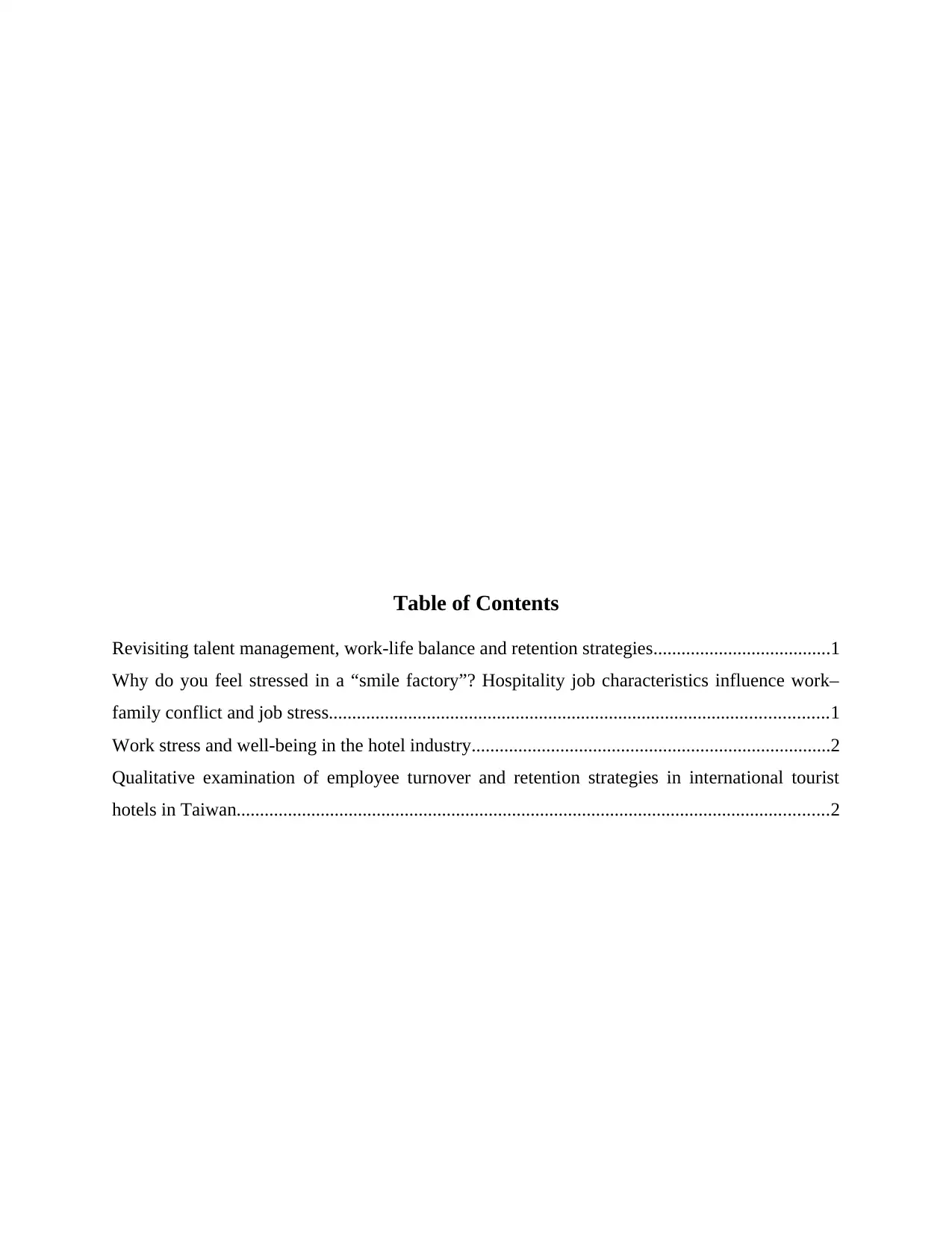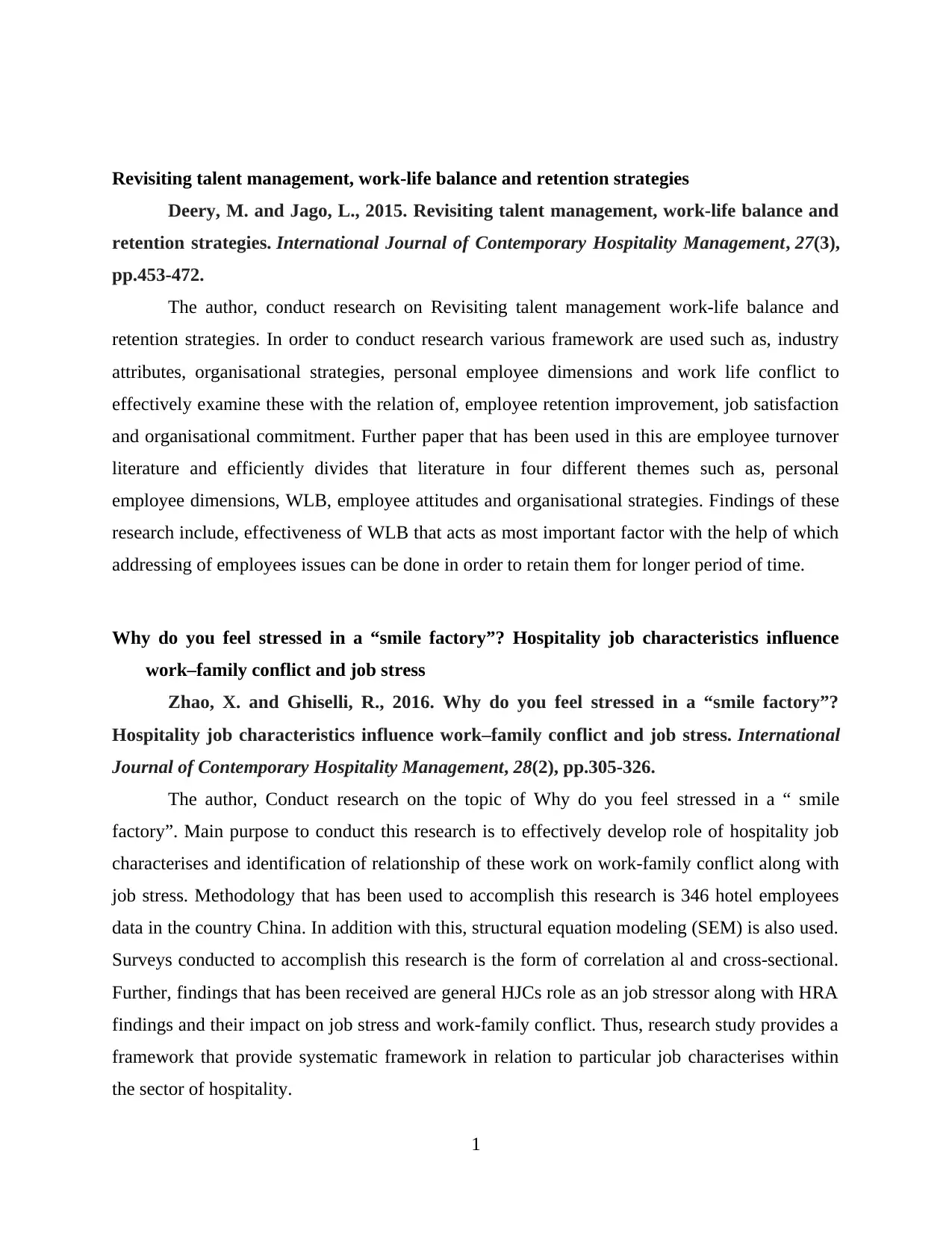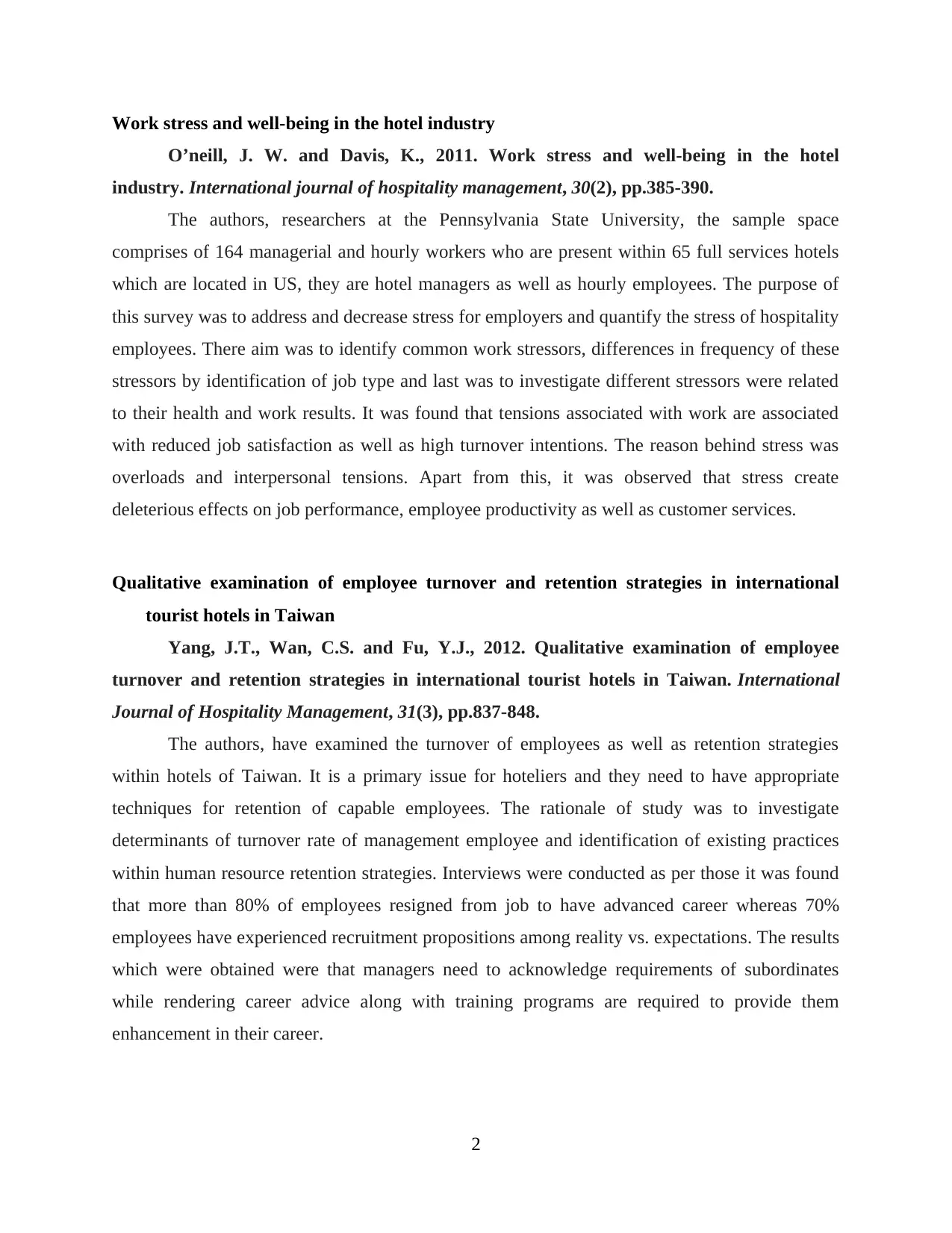Annotated Bibliography: Employee Turnover and Work-Life Balance
VerifiedAdded on 2021/02/18
|4
|847
|229
Annotated Bibliography
AI Summary
This annotated bibliography provides a comprehensive overview of key research articles related to hospitality management, focusing on employee retention, work-life balance, and work stress within the hotel industry. The bibliography includes summaries of four key studies. The first study, "Revisiting talent management, work-life balance and retention strategies," explores the effectiveness of work-life balance in retaining employees. The second, "Why do you feel stressed in a “smile factory”? Hospitality job characteristics influence work–family conflict and job stress," examines the impact of job characteristics on work-family conflict and stress. The third article, "Work stress and well-being in the hotel industry," investigates common work stressors and their effects on employee satisfaction and turnover. Finally, "Qualitative examination of employee turnover and retention strategies in international tourist hotels in Taiwan" examines employee turnover and retention practices in Taiwanese hotels, highlighting the importance of career development and training. Each entry includes details about the research methodology, findings, and implications for the hospitality sector.
1 out of 4











![[object Object]](/_next/static/media/star-bottom.7253800d.svg)